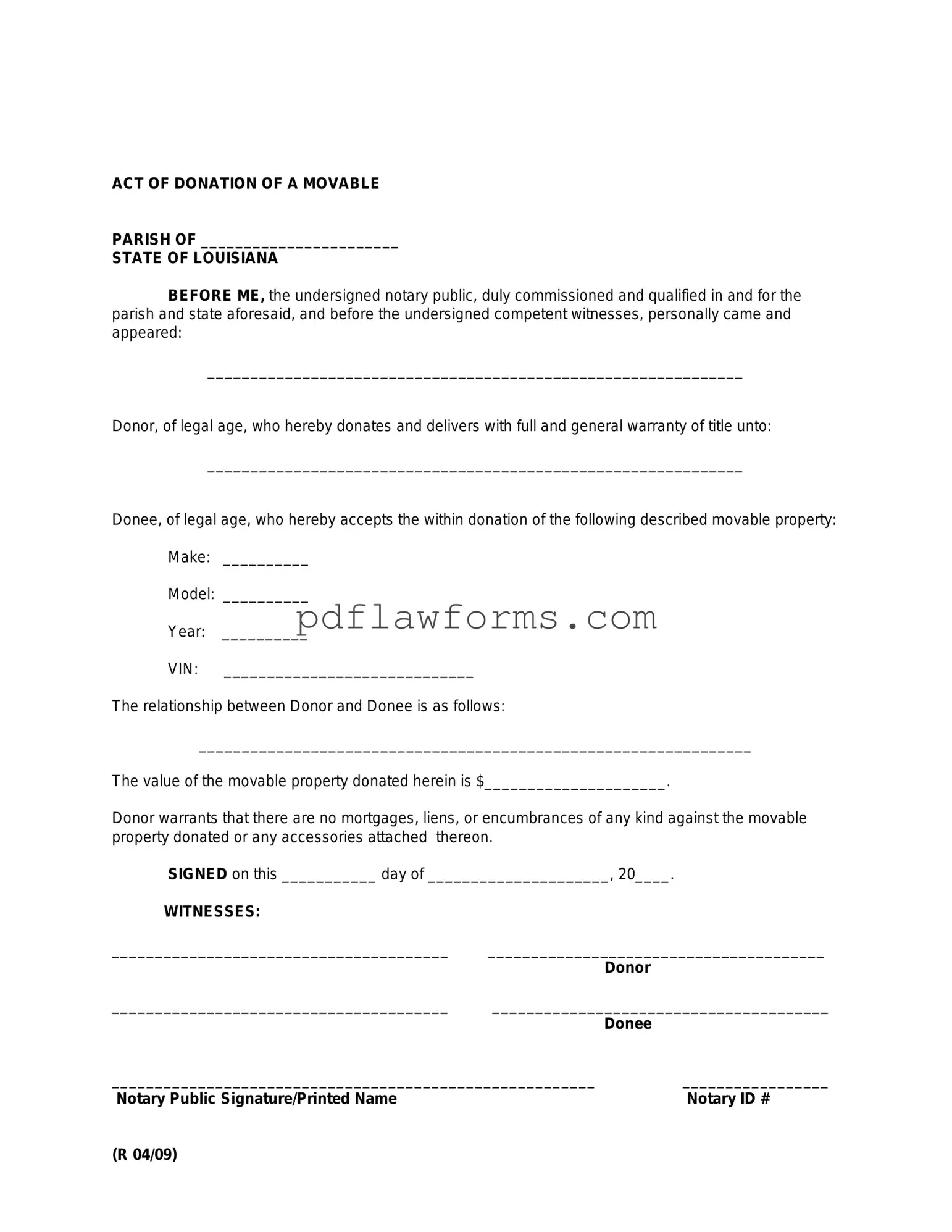Fill Your Louisiana act of donation Template
The Louisiana act of donation form is a legal document used to transfer ownership of property from one person to another without any payment involved. This form is essential for ensuring that the donation is recognized and legally binding. To make your donation official, consider filling out the form by clicking the button below.
Make My Document Online

Fill Your Louisiana act of donation Template
Make My Document Online
You’re halfway through — finish the form
Edit and complete Louisiana act of donation online, then download your file.
Make My Document Online
or
⇩ Louisiana act of donation PDF
